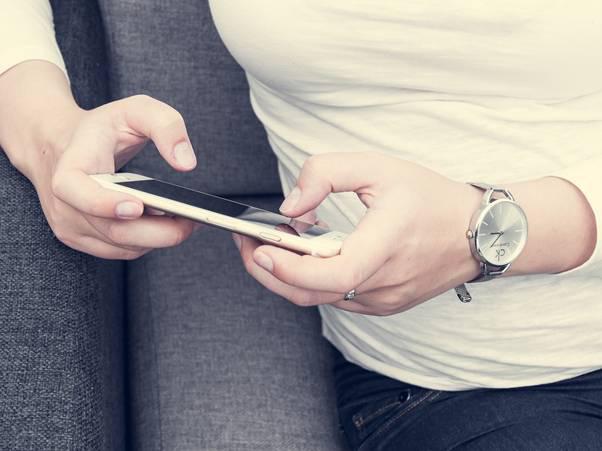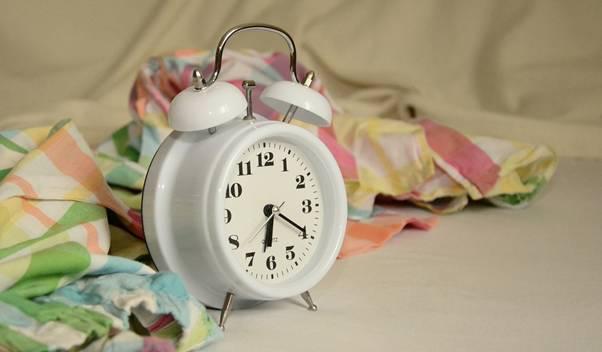“I fear the day that technology will surpass our human interaction. The world will have a generation of idiots.” This famous quote by Albert Einstein is so close to reality that we are now seeing its manifestations.
Technology has taken over the world in recent years. Humans can no longer function without the Internet, computers, cellphones, and other electronic gadgets. Most facets of modern living revolve around digital data designed to make life better. But is life truly better?
Our alarming smartphone dependency
Einstein’s fear is our reality. According to Ericsson’s latest Mobility Report, there are 2.6 billion smartphone subscribers globally today. This massive figure will increase markedly by 2020 due to an explosive demand in emerging markets. We can merely imagine people’s dependency uponsmartphones in the near future.
Today, people lament the declining personal interactions, not only in millennials, but also among baby boomers. Researchers from Virginia Tech in Blacksburg reported that smartphones can drag down a conversation because people are too distracted to catch changes in facial expression and tone of voice. The study suggests that participants in a conversation feel less fulfilled when others constantly stare down at their phones.
The presence of smartphones not only affects social interactions, it also disrupts our lifestyle.If unchecked, the use of these electronic gadgets could be hazardous to our health. Sleep deprivation, which can be due to excessive smartphone usage, is linked to high blood pressure, which can, in turn cause heart attacks and aneurysms
Smartphones and sleeping habit trends
According to Pew Internet Research, 44% of mobile phone users keep their phones near their bed to make sure “they didn’t miss any calls, text messages, or other updates during the night.” It is turning into an obsession and it is affecting sleeping habit trends. There is increasing scientific evidence that link electronics and sleep deprivation. First, people must know that smartphones are powered by microwaves that range from 300 to 3,000 megahertz (MHz). A microwave oven works on 2450 MHz. Exposure to microwaves can result to changes in calcium transport from cells, altered enzyme activities, changes in brain blood flow in healthy people, leakage of proteins through the blood brain barrier, and decreased sperm count.
Excessive smartphone usage and diseases
The World Health Organization (WHO) warns that frequent exposure to microwaves from smartphones can lead to headaches, anxiety, restlessness, sleep problems, difficulty in concentration, ringing in the ears, heart palpitations and fatigue. In worst cases, too much smartphone usage can result in cancer and other tumors.
Your harmful screen time
To know how smartphones affect our sleeping habits, you simply have to observe your own bedtime rituals. How many times do your check your inbox, social media accounts, or trending videos before you doze off? Your screen time is one part of the problem, because screen time blocks the sleepwave that adults need to catch each night. This wave of sleepiness usually arrives at 10 PM and peaks at 1 AM. If you’re unable to ride the wave during these hours, chances are, you will have a hard time dozing off.
The disruptive artificial light of gadgets

How many times do your check your inbox, social media accounts, or trending videos before you doze off?
The effects of screen time on sleep have a lot to do with the artificial light that smartphones and other gadgets emit. The American Chemical Society warns that this light can trick the mind into thinking morning has returned. Light is one of our biological cues on what time it is. So, while you’re watching cat videos or playing a new mobile app in bed, you’re essentially telling your brain that it’s daytime, ultimately keeping your senses awake.
Sleeping habits and our body clock
In acquiring a healthy sleeping habit, you should understand how your body clock works. Our eyes contain a light-sensitive protein called melanopsin. It detects intensity or changes in light levels. When the eyes are exposed to bright light, the melanopsin triggers the body clock into shifting to an active day pattern. Dr. Rob Lucas at the Imperial College in London says that melanopsin cells are “responsible for telling our bodies that it is daytime—daylight is always bright light.”
Unplug and doze off
According to a blog of Uratex Philippines, one effective method about how to fix your body clock is to turn off smartphones within an hour before bedtime. If you need to be informed of emergencies, set your gadget to ring only for important calls.
Aside from unplugging electronic devices, sleep experts also recommend developing a relaxing bedtime ritual. This might include reading a book, meditating, or listening to music. There are also activities that you should avoid, such as drinking alcohol and caffeine, smoking, and watching TV. Hit the gym earlier in the day and not two hours before bedtime.

Harvard University researchers state that it is enough to follow a regular sleeping and waking cycle six hours a week.
Regular sleep-wake schedule
Knowing the effects of smartphones on health is not enough,since it is also essential to know how to correct your body clock once you’ve controlled your gadget use. Develop a regular sleep and wake schedule. You don’t need to doze off at a precise time. Harvard University researchers state that it is enough to follow a regular sleeping and waking cycle six hours a week.
Watching the clock every minute or hour will only stress you out. Even if you have turned off your smartphone, stressing over your inability to fall asleep right away can keep you up all night. Counterproductive.
Optimal sleep environment
Finally, create an optimal sleep environment. Our bodies relax well in a dark room with comfortable temperature. Choose the best bed mattresses for sleeping to ensure quality rest all night. Research published in the Journal of Chiropractic Medicine reported that new foam mattresses can influence sleep quality. New bedding systems are said to be related to abatement of stress-related symptoms—such as back discomfort—that affect the quality of our rest.
Ultimately, it boils down to self-discipline. Discipline yourself to sleep.
Photo Credits
Image 1 courtesy of kaboompics.com via Pexels – Public Domain
Image 2 courtesy of DariuszSankowski via Pixabay – Public Domain
Image 3 courtesy of condesign via Pixabay – Public Domain
Featured image courtesy of photos.oliur.com via Pexels – Public Domain
Guest Author Bio
Anna Rodriguez
 Anna Rodriguez is a manager and a passionate writer. She also has a varied background in real estate brokerage, investing, home design, travel, and frugal living. She owns Homey Guide Blog.
Anna Rodriguez is a manager and a passionate writer. She also has a varied background in real estate brokerage, investing, home design, travel, and frugal living. She owns Homey Guide Blog.
Follow Anna: Twitter
Recent Guest Author Articles:
- New Career and Degree Paths for Educators Who Want to Make a Broader Impact
- Finding the Right Plumber in Portland: A Comprehensive Guide for Homeowners
- Why Choose Elara Caring for Jackson, MI Home Health Services?
- How I Turned Poetry into a Paycheck
- Home Is Where the Health Is: Simple Shifts for a Happier You



I think turning your phone off at night is bad advice. I keep mine on my nightstand and make sure it’s fully charged specifically in case there IS an emergency at night. I live alone. Perhaps it’s different if you live with other(s).